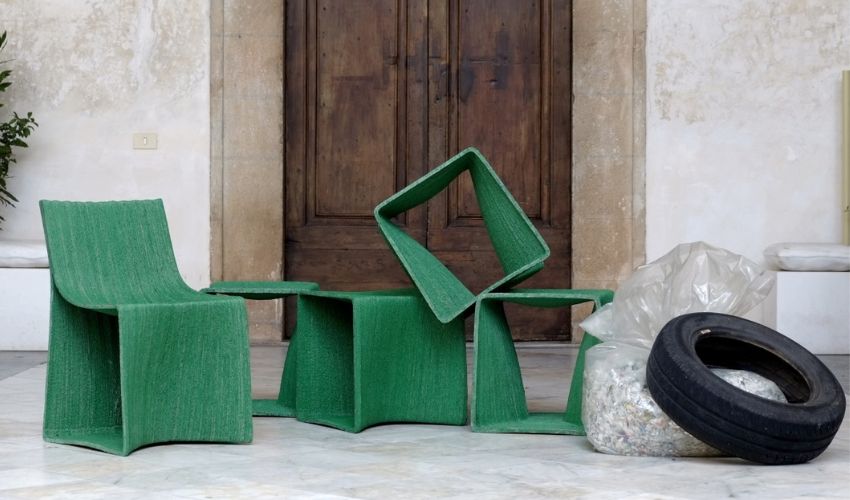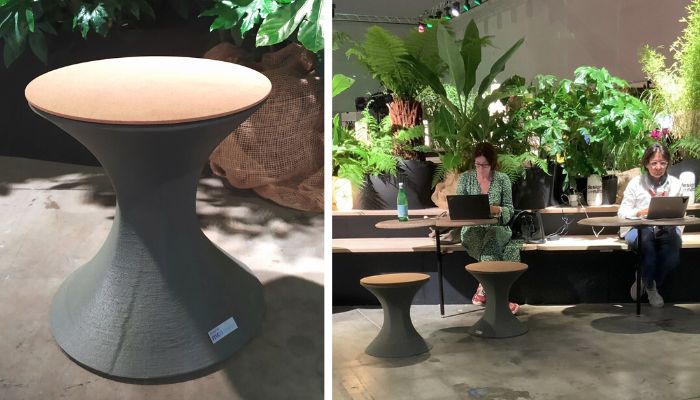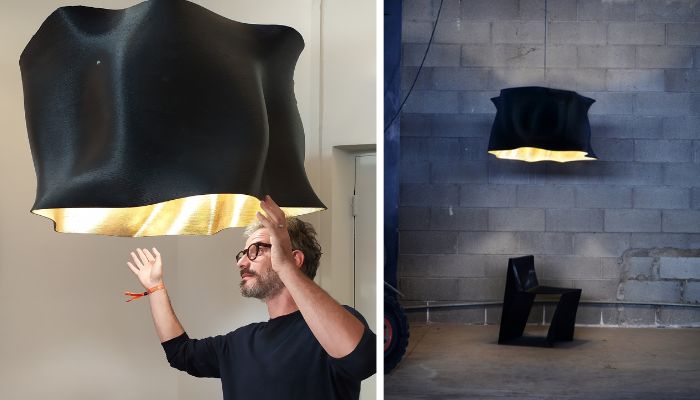R3direct on Making 3D Printed Street Furniture Using Recycled Materials

Sustainability and ecological issues are at the forefront of society today, in all fields. Many companies are taking this issue seriously, exploiting the advantages and benefits of 3D printing to invent materials, products and production processes that have a minimal impact on the environment. R3direct is one of them; this Italian start-up uses large-format 3D printing to make parts out of materials made from recycled waste. Its projects have been recognized and supported by the public administration, as well as by renowned private initiatives in the fields of art and architecture. To learn more, we interviewed its co-founder Stefano Giovacchini!
3DN: Could you introduce yourself and your connection to 3D printing?
Hi! My name is Stefano Giovacchini, I am a designer and co-founder of r3direct, a company experimenting with the use of recycled and sustainable materials for large format 3D printing. I have also “embraced” the circular economy for years, and I teach “Design for the Circular Economy” at the School of Sustainability in Milan. At r3direct I am particularly involved in form and use research for new materials, from circular and sustainable supply chains. I discovered 3D printing as a lover of open source technologies and free software: I was attending the LUG (Linux User Group) in my city, Lucca, and decided with a friend of mine to buy one of the very first kits of the Rep Rap project. It was a real adventure to get to the first print, but it was an experience I still remember with great pleasure. Thanks to 3D printing, I had the opportunity to invent a new job. Currently, we make products and services that would not exist without 3D printers.

3DN: How did r3direct come about? What’s your mission?
R3direct was born thanks to a call for new circular economy ideas issued by the municipality of Capannori (LU) (a famous “recycling municipality” and home of zero waste), in which I participated with what later became my partners, Cristiano Cavani and Marco Paganucci, with the idea of recovering plastic from separate waste collection and creating sustainable products for citizens with it. They liked the idea and we won the tender. After a year we started a research and development relationship with Revet S.p.A., a company that separates multimaterial waste from 90 percent of Tuscany, for the use of recycled plastic granules in large-format 3D printing. To date, we are still partnering with Revet on various projects.
3DN: Can you tell us about the most interesting projects r3direct has worked on?
Precisely because R3direct works a lot in collaboration with designers, from the many synergies very interesting projects were born, but in general the public furniture works are the ones that give us the most satisfaction. Desko® is an innovative model of street furniture designed by four young Florentine architects to study and work outdoors; it is self-sufficient because it is powered by a solar panel. We are doing both the engineering and production, and in March we will install two in a park in Florence. Another noteworthy collaboration is with architect Mario Cucinella, for whom we made 80 stools for his Design with Nature installation, which was presented at the Milan Furniture Fair 2022. To make the stools, we used about 280 kg of post-consumer plastic from door-to-door collection.

The stools made by R3direct based on a design by Mario Cucinella Architects and exhibited at the Milan Furniture Fair 2022.
With the School of Sustainability in Milan, we also printed about 40 seats for Kaboom, a public event dedicated to sustainability held in Bologna in 2020. In addition, I would like to mention the objects that I personally design, to which I am particularly attached, such as the Magma ceiling lamp, printed in “dirty” urban waste and coated internally in gold leaf, which was created in 2019 as the manifesto of our activity and displayed in various international exhibitions.
3DN: Can you tell us more about r3direct’s U.S.E. project?
The USE project has engaged us for years now: it is a research and design project that brings together industry, planners and local government. The idea stems from a thesis by a young architect, Giulia del Grande, who envisioned covering the concrete anti-terrorism barriers (unfortunately still useful and required by law during public events) with a system of modular elements that give a service to the citizen: benches, planters and bicycle racks.
We at r3direct offered to develop the first prototypes, and the result was the first example of the use in public furniture of this material using 3D printers. The result was the creation of the USE benches, one of which was installed in the historic center of Lucca.
It was made using plastic from recycled polyacrylate packaging (Tetrapak type), a blend of polyethylene with a small percentage of aluminum, produced in a plant in our province, but unique in Europe. Here from the recycled Tetrapck comes both recycled paper objects and the granules that we have tested and used in our large-format 3D printers. The USE project is still in the experimental stage, but by 2023 it will become a full-fledged product.

3DN: Art is also at the heart of your business. How do you use 3D printing for this industry?
The use of 3D printing for the production of artistic objects is a growing market for us, which we manage in parallel with research into sustainable materials. For this sector, we use large-format printers with recycled plastics for large works, for example, we made a 2.2-meter-tall Fellini sculpture. Instead, we use medium-format resin printers for objects that need more attention to detail. We make one-of-a-kind pieces or models for mold making or bronze casting. More and more artists are using digital tools to create their works, and they need professionals for the materialization of their work.
3DN: What are r3direct’s future projects?
We are engaged on various fronts, but the project we care most about is the creation of a school dedicated to additive manufacturing, which was born last summer as its first edition. SMAC, School of Additive Manufacturing in Coreglia Antelminelli, a small village in the province of Lucca, is the idea of a seasonal school of professional specialization, where theory and practice come together. This school draws inspiration from the ancient school “Di Disegno e Plastica” (Of Drawing and Plastics) founded in 1883 by Carlo Vanni and aims to be a contemporary continuation projected to popularize new technologies intended as a flywheel for new local economies. You can find more information about the school: HERE.

The 3D printed Magma ceiling lamp
3DN: Any last words for our readers?
Don’t give up the urge to experiment with 3D printing! Ours is a world that has expressed only a fraction of its true potential, and it is still growing.
What do you think of r3direct? Let us know in a comment below or on our LinkedIn, Facebook, and Twitter pages! Don’t forget to sign up for our free weekly Newsletter here, the latest 3D printing news straight to your inbox! You can also find all our videos on our YouTube channel.
*All Image Credits: r3direct






